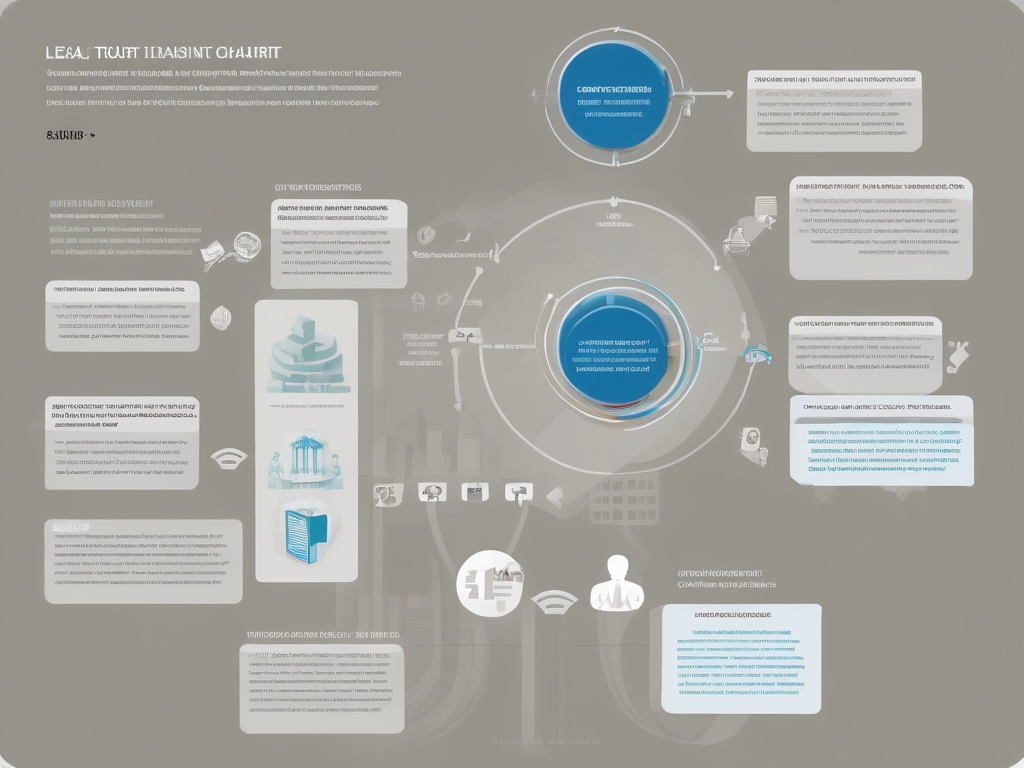
Unlocking Hidden Tax Benefits: The Transformative Power of Charitable Trusts
Discover the Untapped Potential of Charitable Trusts in Maximizing Your Tax Savings
In a world where financial planning is becoming increasingly complex, charitable trusts emerge as a powerful instrument not only for societal good but also for astute tax planning. Many philanthropists and investors overlook the massive tax benefits that these trusts can offer, hiding a wealth of opportunities to optimize your financial legacy. The secret lies in understanding how these legal entities operate and how they can be tailored to align with your philanthropic and financial goals.
Strategic Legal Steps to Establish a Charitable Trust and Unlock Substantial Tax Relief
Setting up a charitable trust involves meticulous legal procedures that, when executed correctly, can provide significant tax deductions and exemptions. The process begins with selecting a reputable legal advisor to draft the trust deed, ensuring compliance with local laws and clarity in the trust’s objectives. Once established, donors can claim deductions under relevant sections of tax laws, often leading to substantial reductions in taxable income. Moreover, charitable trusts are exempt from certain taxes, allowing the accumulated assets to grow and sustain charitable activities over time. This legal framework not only enhances your financial planning but also amplifies your social impact, creating a legacy that benefits both society and your heirs.
By leveraging the strategic legal steps and understanding the comprehensive benefits, individuals and organizations can harness the true power of charitable trusts. This approach transforms philanthropy from mere altruism into a sophisticated financial strategy, unlocking hidden tax advantages while fostering societal development.
Legal Mastery in Establishing Charitable Trusts: Step-by-Step Strategies for Success
Embarking on the journey to create a charitable trust requires more than just good intentions; it demands a deep understanding of legal intricacies that can make or break your philanthropic vision. Achieving legal mastery in this domain ensures not only compliance but also maximizes the financial advantages that such trusts can deliver. This process is a blend of strategic planning, meticulous documentation, and legal precision, designed to carve a clear pathway toward both societal impact and tax efficiency.
Building a Solid Foundation: Selecting Expert Legal Counsel and Defining Clear Objectives
Initiating the establishment of a charitable trust begins with engaging seasoned legal experts who specialize in trust law and tax regulations. Their role is pivotal in drafting a comprehensive trust deed that captures your philanthropic goals while aligning with legal mandates. At this stage, it’s crucial to articulate specific objectives—whether it’s supporting education, healthcare, or environmental causes—and ensure these are reflected accurately in the trust deed. Clear objectives not only streamline the legal process but also facilitate smoother approval from regulatory authorities, ultimately safeguarding your trust’s long-term sustainability.
Structuring with Precision: Drafting, Registration, and Compliance
Once your objectives are well-defined, the next step involves meticulous drafting of the trust deed. This document must comply with local laws and include essential clauses covering governance, asset management, and beneficiary rights. Proper registration with relevant authorities is fundamental to confer legal validity and tax-exempt status. Throughout this phase, legal advisors will guide you through navigating complex compliance requirements, such as obtaining approvals, adhering to reporting standards, and ensuring transparent financial disclosures. Mastery here lies in attention to detail, which ultimately fortifies your trust against legal challenges and enhances its credibility in the eyes of regulators and benefactors alike.
By adopting these strategic legal steps—grounded in expert advice, precise documentation, and unwavering compliance—you create a robust legal framework that not only unlocks significant tax advantages but also cements your legacy of giving. This mastery transforms your charitable intentions into a well-structured instrument capable of enduring generations, amplifying societal benefits while optimizing your financial position.
Maximizing Impact and Incentives: Strategic Planning for Charitable Trusts and Tax Optimization
Unlocking the Full Potential of Your Charitable Foundation
To truly harness the power of a charitable trust, strategic foresight is essential. It’s not merely about establishing a trust but about designing a comprehensive plan that amplifies both societal impact and financial advantages. The key lies in aligning your philanthropic vision with innovative tax strategies that evolve with changing laws and economic conditions. This involves an in-depth analysis of your giving objectives, coupled with meticulous planning that considers future asset growth, regulatory shifts, and potential tax reforms. A well-crafted strategy ensures that your contributions generate maximum deductions today while setting the stage for sustainable impact over generations.
Integrating tax incentives with long-term impact requires a sophisticated understanding of current laws and proactive planning. For example, structuring trusts with specific stipulations can unlock additional tax benefits, such as deferred inheritance taxes or leveraging tax credits for certain types of donations. Regularly reviewing and adjusting your trust’s strategic framework allows you to capitalize on new opportunities, ensuring your philanthropic endeavors remain resilient and impactful. Such an approach transforms your charitable trust from a static entity into a dynamic instrument of social change, optimized to meet evolving financial and societal needs.
Strategic Approaches for Optimal Tax Savings and Societal Benefits
Effective planning involves a detailed comparison of various structuring options, each with unique tax advantages and operational considerations. For instance, establishing a split-interest trust can provide immediate tax deductions while allowing you to retain some control over the assets’ disbursement, balancing philanthropic goals with personal financial interests. Alternatively, donor-advised funds integrated within a charitable trust can streamline the donation process, offering flexibility and immediate tax benefits. The crux of success lies in a nuanced understanding of these options and selecting the one that best aligns with your overarching financial and social objectives. By adopting a tailored approach, you maximize your incentives without compromising the trust’s long-term impact, ensuring your legacy continues to serve society while optimizing your tax position.
